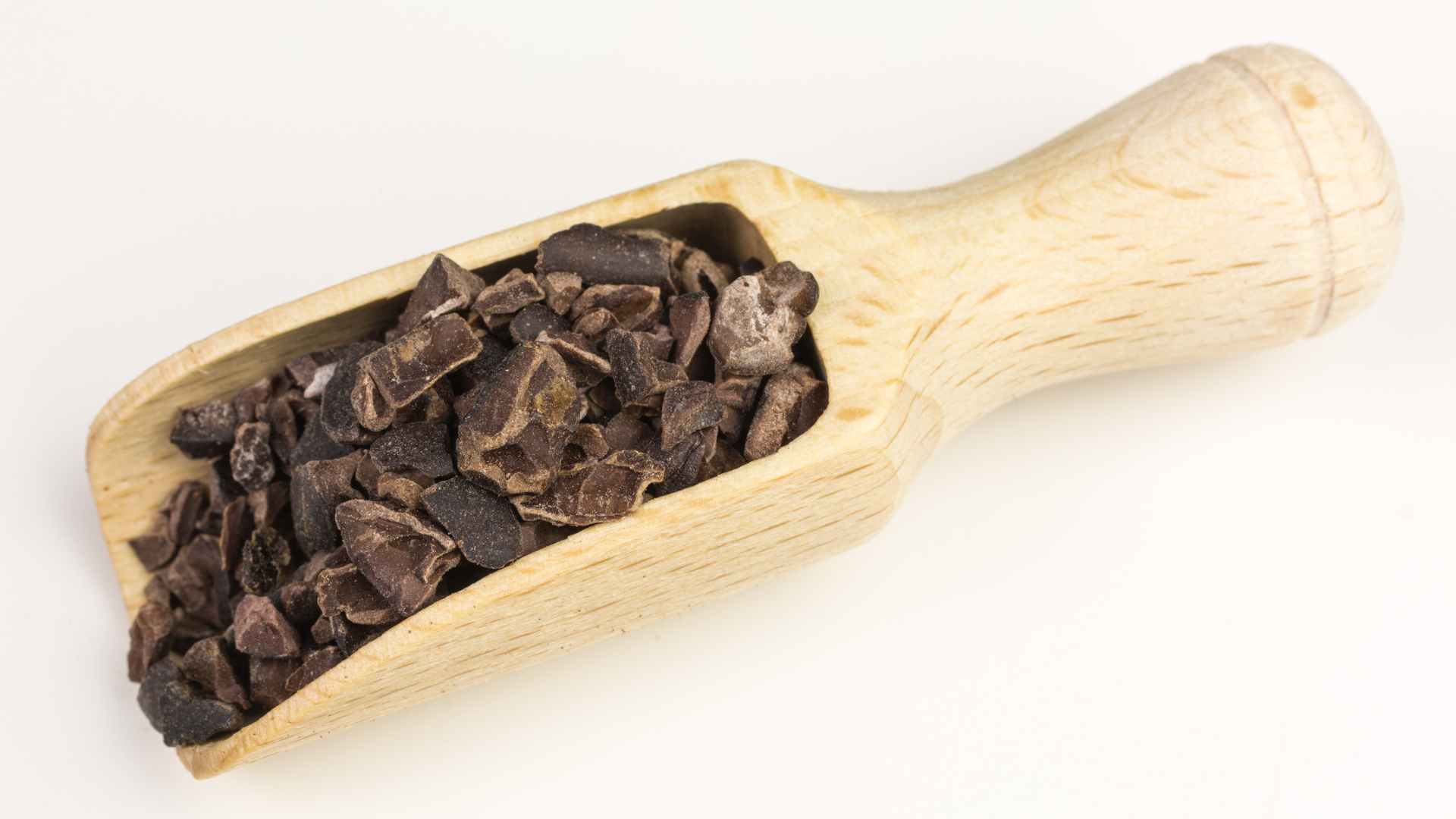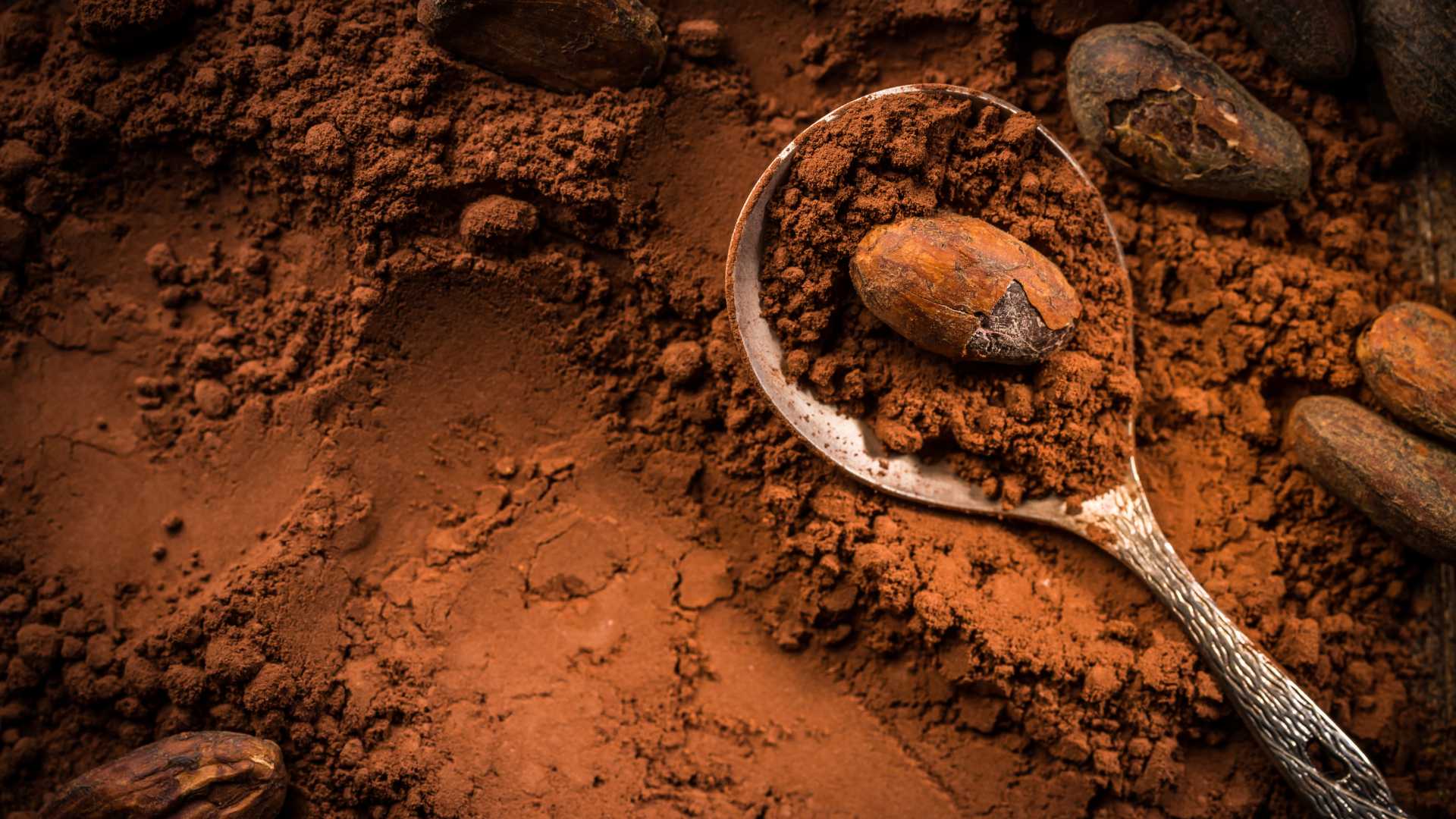Cacao and cocoa may appear identical, but they differ significantly in nutritional content, processing methods, flavour, and health benefits. Both have played vital roles in human diets, especially in the world of chocolate. This article will explore the differences between cacao and cocoa, comparing their nutritional profiles, health benefits, and answering common questions about these two popular ingredients.
Understanding Cacao

Cacao, often referred to as the “food of the gods,” is the raw form of chocolate. It is packed with fruity and nutty flavours and boasts a wide range of healthful nutrients. Let’s delve into the production, nutritional content, and health benefits of cacao.
1. The Process of Cacao Production
Cacao is derived from the seeds of the Theobroma cacao tree. The process of creating cacao is meticulous, aiming to retain as many nutrients as possible. After harvesting, the seeds are extracted from the cacao fruit and undergo fermentation to develop their flavour. Post-fermentation, the seeds are sun-dried and cold-pressed, separating the cacao butter (fat) from the cacao nibs. This method preserves the living enzymes and results in a rich, bitter, and highly nutritious cacao powder.
2. Nutritional Profile of Cacao
Cacao is a true nutritional powerhouse, especially noted for its high antioxidant content, which helps neutralise free radicals and reduce oxidative stress and inflammation. It is also rich in essential minerals such as magnesium, iron, potassium, and calcium, which play crucial roles in regulating blood pressure, supporting neuron function, and maintaining bone health.
Additionally, cacao is loaded with flavonoids, which have anti-inflammatory properties and can boost immune function. These flavonoids are also beneficial for cardiovascular health. Cacao contains neurotransmitters like serotonin, dopamine, and phenylethylamine, which can enhance mood and promote a sense of well-being.
3. Health Benefits of Cacao
Cacao offers numerous health benefits thanks to its rich antioxidant content. It helps protect cells, potentially lowering the risk of cardiovascular diseases and certain cancers. The flavonoids in cacao improve heart health by enhancing blood flow, reducing blood pressure, and lowering cholesterol levels.
Cacao is also known for its mood-boosting properties. The serotonin and phenylethylamine in cacao can help alleviate symptoms of depression and improve overall happiness. Furthermore, cacao has neuroprotective qualities, supporting cognitive function and reducing the risk of neurodegenerative diseases. Its high magnesium content acts as a natural relaxant, helping to reduce stress and anxiety.
In summary, cacao is not just a delicious treat but a nutrient-dense superfood with a wide array of health benefits. Whether you’re enjoying a piece of high-quality dark chocolate or adding cacao powder to your smoothie, you are tapping into the rich nutritional heritage of this “food of the gods.”
Exploring Cocoa

Cocoa is the roasted counterpart of cacao, and it is widely known for its sweet, comforting flavours. Cocoa is the primary ingredient in most chocolate products we enjoy today. Let’s explore how cocoa is processed, its nutritional aspects, and its health benefits.
1. The Process of Cocoa Production
Like cacao, cocoa is sourced from the Theobroma cacao tree. However, the processing method sets cocoa apart from its raw counterpart. After fermentation, the cacao beans are roasted at high temperatures, which develops the familiar chocolate flavour but also alters the beans’ molecular structure. This roasting process reduces the enzyme content and diminishes the overall nutritional value. After roasting, the beans are ground, and the cocoa butter is separated, leaving behind cocoa powder, which is typically less bitter and more soluble in liquids than cacao.
2. Nutritional Profile of Cocoa
Despite the loss of some nutrients during processing, cocoa remains a valuable source of antioxidants, particularly flavonoids, which provide several health benefits. Cocoa also contains small amounts of essential minerals like magnesium, iron, zinc, and manganese, though in lower concentrations than cacao. It’s important to note that many cocoa products contain added sugars and dairy, which can increase calorie and saturated fat intake, potentially offsetting some of cocoa’s health benefits.
3. Health Benefits of Cocoa
Even after processing, cocoa retains several health benefits. The antioxidants in cocoa help reduce oxidative stress and inflammation, lowering the risk of chronic diseases. Cocoa’s flavonoids can also improve blood circulation, lower blood pressure, and help regulate cholesterol levels.
Cocoa has mood-enhancing properties similar to cacao, thanks to the presence of neurotransmitters like serotonin and dopamine. Consuming cocoa in moderation, especially in the form of dark chocolate with high cocoa content, can support cognitive function and reduce the risk of neurodegenerative diseases.
To maximize the health benefits of cocoa, it’s best to choose products with a high cocoa content and minimal added sugars. Dark chocolate is a great option for those looking to enjoy the rich flavours of cocoa while still reaping its health benefits.
Cacao vs. Cocoa: A Comparative Analysis
When comparing cacao and cocoa, it’s like exploring two different worlds that originated from the same source. Both are derived from the seeds of the Theobroma cacao tree, yet their processing methods, nutritional profiles, and health benefits differ significantly.
Cacao is less processed and retains more of the natural enzymes, minerals, and antioxidants found in the cocoa bean. It’s a cold-pressed, unroasted product that preserves its rich, complex flavours and myriad health benefits. Cacao offers a deep, bitter chocolate flavour and is a great choice for those looking to nourish their bodies and improve their health.
On the other hand, cocoa undergoes roasting, which develops its characteristic chocolate flavour but reduces its nutritional value. However, cocoa is still rich in antioxidants and essential minerals, offering cardiovascular support and mood enhancement. The addition of sugars and dairy in many cocoa products can overshadow these benefits, so it’s important to choose wisely and consume in moderation.
The flavour profiles of cacao and cocoa are also distinct. Cacao has a more robust and bitter taste, reflecting its purity and higher nutritional content, while cocoa tends to be sweeter and more mellow, influenced by its processing and the addition of sugars.
When deciding between cacao and cocoa, it’s not just about flavour preferences but also the health and nutritional benefits you seek. If you value a nutrient-rich option and don’t mind a stronger, more bitter taste, cacao is the better choice. However, if you prefer a milder, sweeter flavour and consume it in moderation, cocoa can still be a healthy option.
Conclusion
Cacao and cocoa, though originating from the same bean, differ significantly in their processing, nutritional value, and health benefits. Cacao, with its minimal processing, retains more nutrients and antioxidants, making it a favourite among health-conscious individuals. Cocoa, when consumed in moderation, also provides health benefits, especially when high-quality, minimally processed products are chosen. By thoughtfully incorporating both cacao and cocoa into your diet, you can enjoy their distinct flavours and health advantages.
Frequently Asked Questions
Can Cacao and Cocoa Be Used Interchangeably in Recipes?
While cacao and cocoa can be substituted for one another in recipes, they offer distinct flavours and textures. Cacao’s stronger, more intense chocolate flavour may result in a less sweet, more robust taste if used in place of cocoa, and vice versa. The fat content and processing differences may also affect the consistency and moisture of the final product, so it’s important to adjust sweeteners and other ingredients accordingly.
Which is Better for Weight Loss: Cacao or Cocoa?
Cacao is generally considered better for weight loss due to its lower processing and lack of added sugars. It contains fewer calories and more fibre than cocoa, making it a healthier choice for those managing their weight. Cocoa products, particularly those with added sugars and fats, can be higher in calories, so it’s essential to choose dark chocolate variants with high cocoa content and minimal additives if weight management is a goal.
Is it Safe to Consume Cacao or Cocoa Daily?
Both cacao and cocoa can be consumed daily as part of a balanced diet, offering numerous health benefits such as mood enhancement, antioxidant protection, and cardiovascular support. However, moderation is key. Cacao, due to its higher caffeine content, may cause side effects like insomnia if consumed in large quantities. Many commercial cocoa products contain added sugars and fats, which can affect calorie intake and overall health.
What are the Nutritional Differences Between Cacao and Cocoa?
Cacao is richer in antioxidants, vitamins, and minerals due to its minimal processing. It contains higher levels of magnesium, iron, and flavonoids compared to cocoa, which loses some of its nutritional value during high-temperature roasting. Cocoa, while still nutritious, often comes with added sugars and fats, especially in commercial products.
How Do Cacao and Cocoa Support Health?
Cacao’s high antioxidant content helps reduce inflammation and oxidative stress, promoting heart health and cognitive function. Its magnesium and iron content support muscle and oxygen transport in the body. Cocoa, although less nutrient-dense than cacao, still offers health benefits through its flavonoids, which can improve blood flow and reduce blood pressure. However, it’s crucial to choose cocoa products with minimal additives to avoid the negative health impacts of added sugars and fats.

